-
What is the Best Kind of Toothpaste to Use?
A trip to the toothpaste aisle can be daunting because there are so many brands and types from which to choose. How can you pick the best kind of toothpaste to use? We’ve got some expert tips to help you decide.
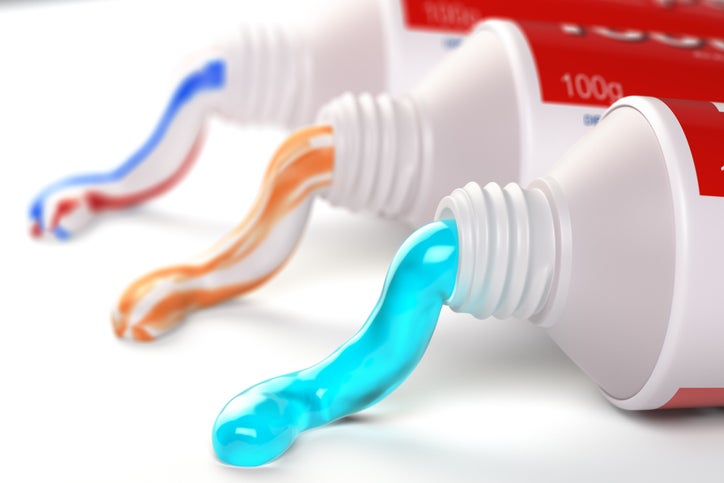
- First and foremost: let’s talk about fluoride. The American Dental Association (ADA) and most dentists agree that fluoride is an essential ingredient in toothpaste. A natural mineral that protects tooth enamel, it’s been proven safe and effective in fighting cavities. In fact, since the addition of fluoride to toothpaste and drinking water a few decades ago, there’s been a significant reduction in dental cavities. However, some people are not comfortable with fluoride. If you prefer to avoid it, look for a natural toothpaste, because many natural formulations do not contain fluoride.
- You may want to look for ADA approval. Toothpaste products sometimes carry the ADA seal of approval, which means that they meet the ADA’s strict requirements for toothpaste. To gain ADA approval, a toothpaste must contain fluoride and other active ingredients that improve oral hygiene, be free from flavoring agents that can promote tooth decay, and be scientifically proven to be safe and effective. Note: ADA approval is voluntary. In other words, the ADA seal of approval guarantees a toothpaste’s efficacy, but a toothpaste that lacks the seal may be just as effective.
- Read the labels for yourself. Sometimes, toothpaste contains ingredients that aren’t suitable for everyone. If you’re sensitive to a certain chemical, flavoring, or sweetener, be sure to make sure it’s not hiding in your toothpaste. For instance, if you get frequent mouth ulcers or canker sores, you might look for a toothpaste that does not contain sodium lauryl sulfate (SLS). Other ingredients you may wish to avoid include saccharin, a sweetener, glycerol, which gives toothpaste a gel-like consistency, and calcium carbonate or silicates, which are abrasive materials.
- Choose your toothpaste based on your dental needs. You might need a tartar control toothpaste to remove deposits of hardened plaque, or a toothpaste for sensitive teeth. Desensitizing toothpaste, with ingredients that block pain, can be purchased over the counter. If you need something more, ask your dentist about prescription toothpaste for sensitive teeth.
- Do you want to whiten? Whitening toothpastes can help remove stains from your teeth, using abrasive ingredients that polish stains off of the tooth’s surface. If you’ve got sensitive teeth, you’ll need to be careful about whitening toothpastes, and ask your dentist about options that are right for you.
If you need a dentist in New York, consider Park 56 Dental Group, where we provide personalized, quality dental care in a spa-like environment. We serve the Midtown, Central Park, Upper East Side, Park Avenue, and all surrounding Manhattan and New York areas, with a patient-centered practice that has hours to fit your schedule. Schedule your complimentary consultation today by contacting us online or calling us at (212) 826-2322.
-
Tips to Look After your Teeth
Are you doing everything you can to take care of your teeth? Your oral health should be a high priority because the health of your mouth impacts the overall health of your body. Follow these ten tips, and you’ll be able to keep your teeth in tip-top shape.
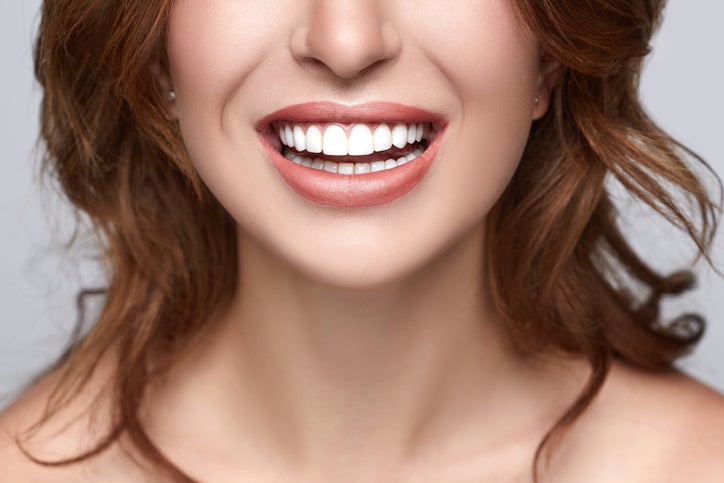
- Brush no fewer than two times each day. It’s best to brush after meals, with a toothbrush that has a small head, for easier access to the back teeth. Use soft bristles, because they’re easier on your gums.
- Brush the right way. Spend between two and three minutes, brushing each tooth, using small, circular motions.
- Use the right toothpaste. A fluoridated toothpaste is best, because fluoride is proven to reduce your risk of tooth decay by hardening the enamel.
- Floss every day. Be gentle, sliding the floss gently up and down between your teeth, and working it back and forth. Gently curve it around the base of each tooth, taking care to go beneath the gum line. Use clean sections of floss for each tooth, and never force or snap the floss between your teeth.
- Cut down on acidic drinks. Soft drinks, cordials, and fruit juices can soften teeth, dissolving the minerals in the enamel and causing holes (cavities).
- Reduce your sugar, too. Sugar is turned into acid by the bacteria in dental plaque, which is why it can cause cavities.
- Use protective gear when your teeth are at risk. If you play sports, always wear a mouthguard or full-face helmet.
- Know what to do with a knocked-out tooth. Sometimes even protective gear is not enough. If a tooth is knocked out, try to hold it in place while seeking dental care. If that’s not possible, place the tooth in milk or wrap it in plastic, then get to a dentist.
- Don’t use your teeth as tools. We’re all guilty of doing this from time to time. We use our teeth to rip open packaging, crack nuts, or open a bottle. It’s a bad idea though, because you can chip or even break your teeth that way.
- See your dentist regularly. It’s recommended that you visit your dentist every six months for a check-up, but if you have a problem like bleeding gums or a toothache, make an appointment as soon as possible.
If you need a dentist in New York, consider Park 56 Dental Group, where we provide personalized, quality dental care in a spa-like environment. We serve the Midtown, Central Park, Upper East Side, Park Avenue, and all surrounding Manhattan and New York areas, with a patient-centered practice that has hours to fit your schedule. Schedule your complimentary consultation today by contacting us online or calling us at (212) 826-2322.
-
Choosing the Best Toothbrush
You know that you need to brush at least twice a day, but are you using the right tools? Fluoride toothpaste will go a long way toward protecting your teeth from cavities, and the right technique is important in getting your teeth clean. However, it’s important that you’ve got the best toothbrush for the job. How do you choose the right one?
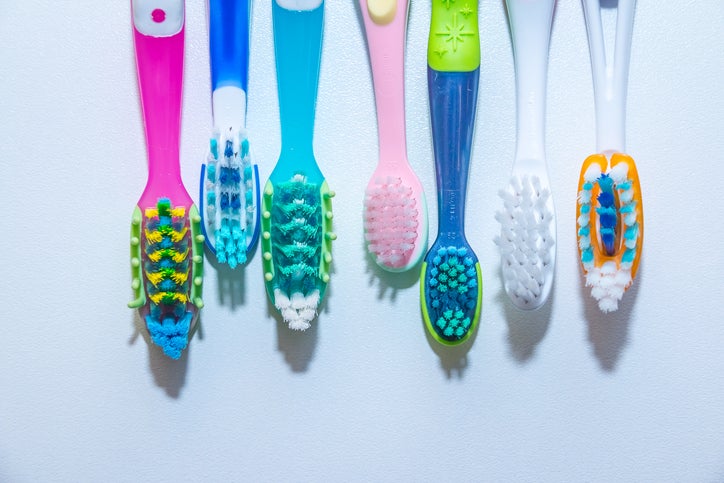
- First, consider the size. Choose a toothbrush with a head that will easily fit into your mouth and access all the surfaces of your teeth. Typically, this means picking a brush with a head about a half-inch wide and one inch tall, so that you can reach even the difficult places, like the sides and backs of your molars. Make sure the handle is long enough to fit comfortably in your hand and easily reach the back of your mouth.
- Pick the right bristles. For most people, a soft-bristled toothbrush is best, because it won’t damage the gums or tooth enamel. For further protection, you might want to choose a brush with rounded tips on the bristles.
- Ask an expert. To be sure you’re choosing the right toothbrush, consider asking your dentist for a recommendation, or look for a toothbrush with the American Dental Association (ADA) Seal of Approval. This seal ensures that the bristles will have safe tips and won’t fall out of the toothbrush, the handle will withstand normal use, and the toothbrush will reduce plaque build-up and gum disease. If the toothbrush is electric, it must undergo independent safety testing to earn the seal, proving that it can be safely used on the tissues of the mouth and teeth, as well as dental hardware.
- Which is better, disposable or electric? Manual and powered toothbrushes are equally effective, as long as you’re using proper technique and brushing at least twice a day. Some studies indicate that a rotation oscillation powered toothbrush is best, though other studies suggest that electric toothbrushes increase the risk of infection for people with certain heart conditions. Electric toothbrushes are more expensive, but some people find them easier to use, especially people with conditions like arthritis, which limits mobility. Ultimately, the best choice for you is the toothbrush you like best because you’ll be more likely to use it.
- How do you choose for a child? Choose a toothbrush your child will find appealing and want to use. Make sure it’s got the ADA Seal of Approval and is child-sized, with soft bristles. Involve the child, if possible, to make tooth-brushing more exciting.
If you need a dentist in New York, consider Park 56 Dental Group, where we provide personalized, quality dental care in a spa-like environment. We serve the Midtown, Central Park, Upper East Side, Park Avenue, and all surrounding Manhattan and New York areas, with a patient-centered practice that has hours to fit your schedule. Schedule your complimentary consultation today by contacting us online or calling us at (212) 826-2322.
-
Why Diet Drinks May Cause Problems with Your Teeth

We all know that sugar is bad for our teeth, so if you’re a soda drinker, you may have been concerned about your habit ruining your smile. If you’ve switched to diet drinks, the problem is solved, right? Not so fast. Diet drinks have tooth-damaging effects of their own, sugar or no.
What’s the problem with diet drinks? They’re fizzy, and that means they’re acidic. The acid used to create the bubbles that make soft drinks so appealing can also erode dental enamel. What’s more, sodas don’t have any nutritive value, and they’ve even been linked to type two diabetes, which can cause further dental problems.
It also matters what you’re eating while you drink your diet drink. If you’re drinking diet drinks to allow you to splurge on sugar elsewhere, they’re really not improving your diet. If you’re drinking them between meals, the acid in these drinks can do more damage than if you drink them with a meal.
What about seltzer or sparkling waters? Many people looking to break the soda habit have switched to bubbly waters as a healthier alternative. Does the acid in sparkling water damage your teeth? Different brands of seltzer and sparkling water have different levels of acidity, so they affect your teeth differently. Even the flavors can impact the acidity, with citrus flavors more acid than some others.
If you want to know specifics about your preferred drink, you can get a pH testing kit and figure out exactly how acidic it really is. Tooth decay can occur at a pH level of 5.5, drinks with a level lower than 4 are considered erosive, and those under 3 are considered extremely erosive. Soft drinks, whether diet or otherwise, are usually in the 2-3 range, erosive to very erosive. Most sparkling waters fall in the minimally erosive range, with a pH higher than 4. Plain water? It’s the perfect thing to drink, with a balanced pH of right around 7, which is neutral.
Ultimately, seltzer doesn’t really need to be off–limits, and it’s not the worst thing in the world if you occasionally indulge in a diet drink, as long as the rest of your diet is healthy. It’s smart to save your fizzy drinks for mealtimes, though, and drink plain water most of the time. To keep your teeth truly healthy you also need to eat a nutrient-dense diet, brush and floss regularly, and see your dentist for regular checkups.
At Park 56 Dental Group, we provide personalized, quality dental care in a spa-like environment. We offer pediatric, prosthodontics, endodontics, oral surgery, Invisalign®, emergency, and sedation dentistry, all at the highest level of treatment. We serve the Midtown, Central Park, Upper East Side, Park Avenue, and all surrounding Manhattan and New York areas, with a patient-centered practice that has hours to fit your schedule. Schedule your complimentary consultation today by contacting us online or calling us at (212) 826-2322.
-
How Sports Drinks Could Be Ruining Your Teeth

Do you rely on sports drinks to keep you hydrated when you’re working out or playing sports? Sports drinks are helpful if you’re working out in extreme heat, for an extended period of time, or when you’re working out after you haven’t eaten for a while. Because of the electrolytes and carbohydrates in sports drinks, they’re very useful in replacing nutrients and providing energy in extreme situations. However, there’s research to indicate that regular consumption of sports drinks can be hazardous to your dental health.
A recent study of elite and professional athletes revealed that many of them have substantial dental problems, regardless of good dental hygiene. This study, published in the British Dental Journal, looked at 352 athletes, with 256 of those athletes on track to compete in the 2016 Rio Olympics. Competing across different types of sports, including swimming, cycling, soccer, rowing, hockey, sailing, and athletics, the participants had an average age of 25 years old. Out of the 352, 344 completed a questionnaire regarding their dental hygiene, sugar consumption, whether they smoked or chewed gum, and when they last saw the dentist. Pertinent findings included:
- Most of the athletes brushed their teeth twice a day and saw their dentists regularly.
- 80 percent of the athletes consumed sports drinks while training or competing.
- 58 percent used energy bars, and 70 percent took gels.
The risk of dental problems seemed to be heightened by the changes in the makeup of the athletes’ saliva during and after intense exercise. Sports drinks, energy bars, and gels are marketed without guidance about oral health. While the researchers acknowledged that their findings were limited, especially because they had to rely on the participants’ honesty about their habits, they still concluded that these products have a negative impact on dental health. The sugar the products contain increases the risk of tooth decay, and the acidity of the products increases the risk of erosion. During the dental check-ups of the athletes, the researchers noted high levels of tooth decay and acid erosion.
What does this mean for the general population? Because dental problems are common, the CDC recommends fluoride toothpaste and fluoridated water, thorough brushing and flossing, and regular dentist visits, abstention from smoking and limited alcohol consumption. We would add that it also might be best to stick with water during most exercise periods, rather than hydrating with sports drinks that may damage your teeth.
At Park 56 Dental Group, we provide personalized, quality dental care in a spa-like environment. We offer pediatric, prosthodontics, endodontics, oral surgery, Invisalign®, emergency, and sedation dentistry, all at the highest level of treatment. We serve the Midtown, Central Park, Upper East Side, Park Avenue, and all surrounding Manhattan and New York areas, with a patient-centered practice that has hours to fit your schedule. Schedule your complimentary consultation today by contacting us online or calling us at (212) 826-2322.
-
How Often Should You Visit the Dentist?
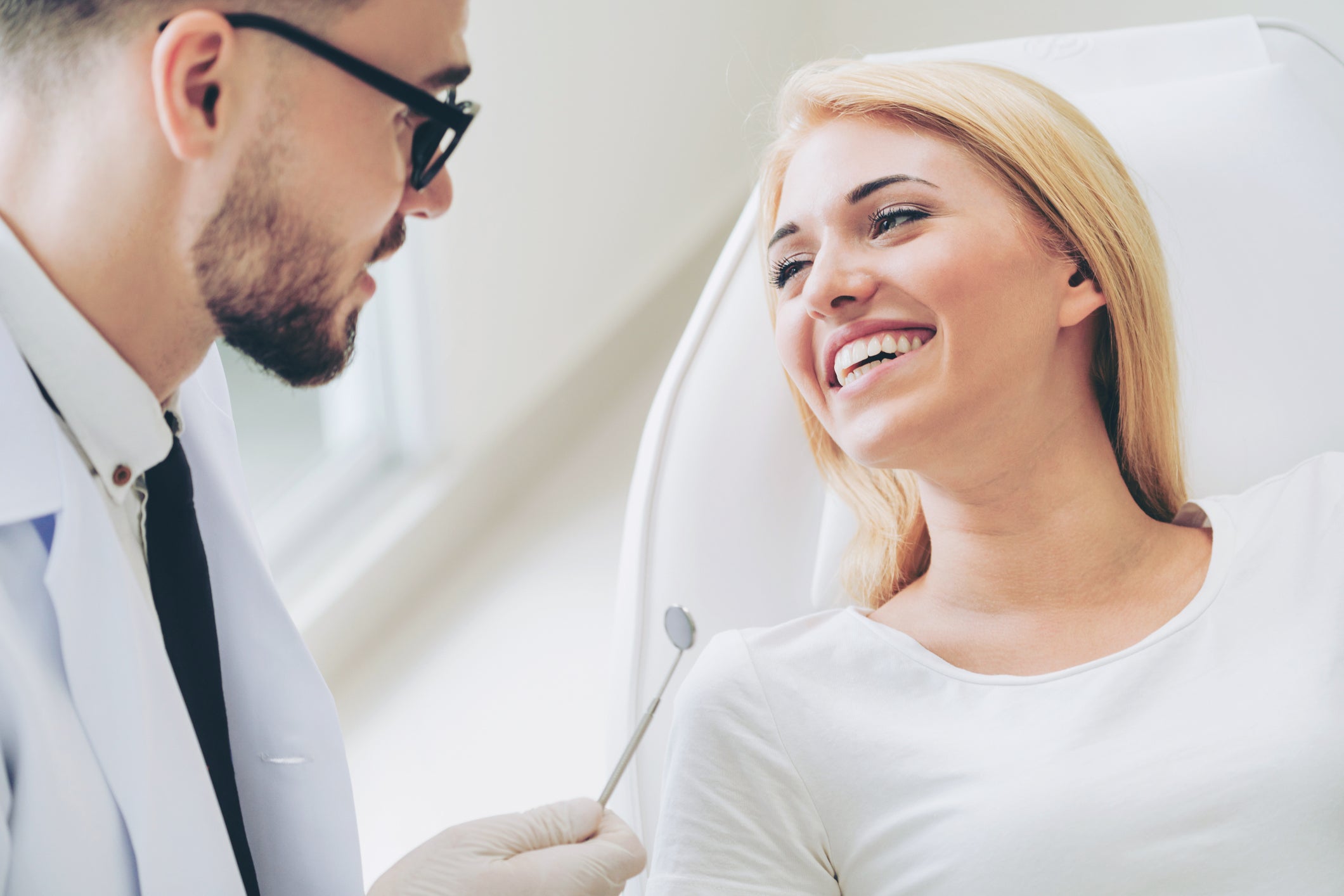
There haven’t always been guidelines for how often you should visit the dentist. As recently as 50 years ago, many dental professionals focused on restoring smiles rather than keeping them healthy in the first place.
Then, dental and health organizations began to rally around the idea of setting standards for preventative dentistry. It is upon these standards—and the continuing evolution of dental care and advice—that dentists operate today.
Visit the Dentist Every 6 Months
The general rule of thumb is to visit the dentist every six months. This timeframe allows your teeth to benefit from frequent professional cleanings that can prevent gum disease and cavities.
With no evidence to work from, early dental and health organizations made their “best guess” when they recommended that people see the dentist twice a year. The advice ended up being spot on! Some of the first publicized references to this recommendation were found in early Pepsodent ads, such as this one from 1931, which advises customers to “use Pepsodent twice a day—see your dentist twice a year.”
Even if you take great care of your teeth at home—by brushing every morning and night, and never forgetting to floss each day—you still need to see a dentist regularly. First of all, those tartar stains that form on your teeth can only be removed with professional dental tools.
Plus, there’s always the possibility of developing cavities, gum disease, or oral cancer, which don’t exhibit symptoms in their early stages. Frequent visits to the dentist give you a chance to uncover these problems and reverse them while they’re still in a manageable stage.
Consider Oral Hygiene, Eating Habits & Medical Conditions
While seeing the dentist every six months is a good recommendation for most people, it doesn’t apply to everyone. For instance, some individuals with a spotless dental record, flawless oral hygiene, and a healthy diet have a low risk for oral health problems. They may do just fine seeing the dentist only once a year.
Other people have a higher-than-average risk for cavities, gum disease, and oral cancer. We recommend that the following groups visit the dentist more frequently:
- Smokers
- People prone to cavities or plaque buildup
- Periodontal disease patients
- Pregnant women
- Diabetics
- People with bacterial infections or weak immune systems
- People dealing with illness or high stress
These individuals may need to visit the dentist every three or four months for a short time, for several years, or throughout their entire life. More frequent dentist visits help to fight off infections, treat changes in the mouth, and prevent certain situations or lifestyle choices from causing more severe health problems.
Park 56 Dental is ready to serve as your dentist in NYC! At your next appointment, be sure to ask for advice about what dental cleaning schedule you should follow. For answers to your remaining questions, or to schedule a visit, please contact us at (212) 826-2322 today.
-
Summer Dental Care Tips

You might have a carefree attitude this summer, but don’t let the family vacations and time off of school negatively impact your teeth. Instead, keep your smile beautiful with these summer dental care tips.
Drink More Water
Instead of reaching for sugary, acidic soda when you’re thirsty, make the right choice for your dental health and choose water instead. Drinking water washes away food particles and plaque-causing bacteria that can lead to cavities and bad breath. Tap water, in particular, promotes a brighter smile because it contains fluoride to strengthen your enamel.
Plus, staying hydrated reduces your risk of dry mouth. With adequate saliva production, your teeth benefit from a slippery, protective coating that prevents debris from clinging and acids from eating away at your enamel.
Drink Acidic Beverages Through a Straw
When you do indulge in soda, juice, or lemonade, use a straw to reduce contact with your teeth. Enjoy the taste of your drink, but don’t swirl it around your mouth. After all, you want to limit the amount of time acid and sugar linger on your teeth.
Sip on Tea
Green tea is full of antioxidants that promote good health. It can even suppress bacteria growth, slow down tooth decay, and help prevent gum disease. Drink tea to your heart’s content, but don’t forget to rinse your mouth out afterward. This is because, despite its benefits, tea can leave surface stains on your teeth. Your dentist can remove these, but it’s easiest to prevent them if you can by swishing with water after each cup of tea.
Eat the Right Snacks
It’s fun to chew on gummy candy, sip on sports drinks, and snack on starchy crackers and pretzels, but these goodies don’t do your teeth any favors. Smarter snacks include raw fruits and vegetables, low-fat dairy products, and crunchy nuts and seeds. These tasty, nutritious snacks fill you up, fuel your summer activities, and help you maintain a healthy smile. Chewing on sugar-free gum after a meal or snack can also help remove food particles and prevent cavities.
Schedule a Dental Checkup
If it’s been six months since your last trip to the dentist, this summer is the perfect time to schedule a checkup. Fit it your appointment before your upcoming vacation, if possible, to reduce the chance of a dental emergency while you’re out of town. A dentist appointment is also beneficial before the school year starts this fall. Get any cavities taken care of before the hectic back-to-school season begins!
The experienced NYC dentists at Park 56 Dental are prepared to offer personalized, quality dental care for you and your kids in a comfortable, spa-like environment. We’ll help you smile bigger and brighter this summer as you enjoy making memories with your family!
To learn more about us, or to schedule a visit, please contact us at (212) 826-2322. If you’re new to our office, we’ll provide a consultation to ensure we can meet your dental care needs.
-
Questions to Ask at Your Next Dental Appointment
When it comes to dental health, the more knowledge that you have, the better. Because you may not get too many chances to talk to your dentist in person, it’s important to be prepared with any inquiries that you have. The following are a few questions that may be beneficial for you to ask during your next dentist appointment.
How healthy is my mouth?
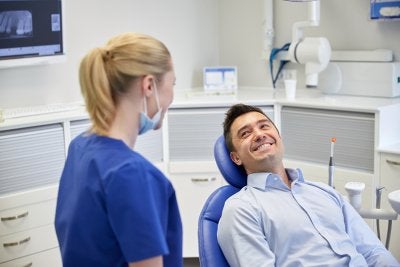
If you’re at all concerned about your oral health, then you can benefit from talking to your dentist about the state of your teeth and gums. Learn about potential areas for improvement, what you may be doing right or wrong with your oral hygiene methods, and if there is anything that you should be paying particular attention to. Also, do not hesitate to ask any questions you have so you can gain a clear understanding about the health of your mouth.
What is the best way to brush my teeth?
While you’re probably aware of the importance of daily teeth brushing , there may be ways to improve your brushing habits. Your dentist may advise the use of a softer bristled brush to help protect your enamel, or a specially formulated toothpaste to help with sensitivity. He may also ask you to demonstrate how you currently brush your teeth so he can offer helpful tips.
What is the purpose of this procedure and how is it performed?
If your dentist has advised a particular treatment to improve your oral health, you should ask as many questions as you would like about its nature. Having a good understanding of why a particular procedure is necessary may help you to take better care of your teeth. Additionally, when you understand the steps involved in your treatment, this can help with any anxiety that you may be feeling about it.
If you’re looking for a dentist office near NYC to schedule your next dentist appointment, give Park 56 Dental a call at (646) 783-3529. Our team of skilled dental professionals can help you improve the health of your mouth and learn about options like dental implants.
-
Restoring Your Smile at Park 56 Dental
 Your smile is important; a good smile can boost confidence and make an excellent first impression when meeting new people. If you are not satisfied with your smile, the top dentists at Park 56 Dental offers a number of options to restore your smile through cosmetic dentistry.
Your smile is important; a good smile can boost confidence and make an excellent first impression when meeting new people. If you are not satisfied with your smile, the top dentists at Park 56 Dental offers a number of options to restore your smile through cosmetic dentistry. Most dental problems can be fixed with the use of veneers or dental implants. Dental veneers are thin custom fit shells that are used to alter the appearance of your tooth. They are made of materials that blend in with your natural teeth and can be fit to adjust the size, shape, and color of your existing teeth. Dental implants offer a solution to a missing tooth or multiple teeth. By implanting a piece of metal that fuses with existing bone, dental implants offer a long-term solution to missing teeth.
To learn more about getting the smile you’ve always dreamed of, make an appointment with Park 56 Dental today. We were voted top dentist in NYC . Call (646) 783-3529 to learn more.
-
Benefits of Veneers
Veneers are thin pieces of porcelain or composite resin that are attached to teeth to create a beautiful smile. If you have chipped or broken teeth, or your stained teeth are not responding to traditional whitening treatments, then veneers may help you achieve the beautiful smile that you desire. If you’re interested in getting veneers, talk to a top dentist to see if this option is right for you.
Veneers Are Strong and Stain Repellent

Veneers are stronger and more resilient than your natural tooth enamel. While they’ll look like your natural teeth, veneers will repel stains and stay a bright, attractive shade of white. That’s why veneers are a great cosmetic solution for people who are looking to get a white smile that will remain looking good for a long time to come.
Veneers Act as Chip Fixers
Do you have a chipped or broken tooth? Or perhaps you have some small gaps in your teeth that you wish would just disappear? Since veneers are placed on top of the tooth enamel, they can restore the look of chipped or broken teeth and fill in unsightly gaps. That’s why even the top dentist recommends veneers for smile restoration .
Veneers Can Be Applied at Your Dentist’s Office
Veneers can be applied during one or two appointments at your dentist’s office. The dentist will take off a small amount of tooth enamel to create a place for the veneer on your tooth. Then, the dentist will take an impression of the tooth so that an exact replica can be made. Finally, the dentist will use adhesive cement to apply the veneer to the tooth.
If you’re interested in improving the appearance of your smile, veneers may be the way to go. Are you looking for a dental clinic near NYC for veneer application? Call Park 56 Dental at (646) 783-3529 today to set up an initial appointment with a cosmetic dentist.
RECENT POSTS
categories
- Uncategorized
- Cosmetic Dentistry
- Veneers
- Healthier Teeth
- Teeth Whitening
- Dental Health
- Video
- Dental Emergencies
- Invisalign
- Dental Implants
- Root Canal
- Sedation Dentistry
- Infographic
- Dental Crowns and Bridges
- Dental Anxiety
- Gum Disease
- COVID-19
- Bad Breath
- New York Dentist
- Cut out sugar
- General Dentistry
- Oral Health
- Oral Cancer
- Dry Mouth
- Gum Health
- Toothache
- Dental Sealants
- Cavities



